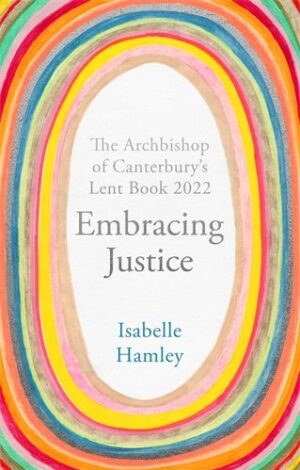



This series is a five part journey exploring the themes of the book Embracing Justice – The Archbishop of Canterbury’s Lent Book 2022. Specifically looking at the question, ‘What might a spirituality shaped by biblical portrayals of justice look like for the church of the 21st century?’
In this session Isabelle Hamley interviews Hosam Naoum, the Archbishop of Jerusalem about the subject of Justice.
The Archbishop of Jerusalem is a Palestinian Anglican bishop in Israel. He was educated at Rhodes University and the Virginia Theological Seminary. He served at parishes in Nablus, Zababdeh and Jerusalem. He was Canon Pastor at St. George’s Cathedral, Jerusalem from 2005 to 2012. He was then its Dean until his consecration as Coadjutor bishop on 14 June 2020. He was installed as Archbishop in Jerusalem in 2021.
Micah 6:8
He has shown you, O mortal, what is good.
And what does the Lord require of you?
To act justly and to love mercy
and to walk humbly with your God.
Justice is not a technical term achieved by doing a calculation, conclusions cannot be made without context. The idea of justice can been seen from different angles depending on where you are sitting in the discourse. It is a process of transforming the mind. The question is whose and what justice it is. Gods idea of justice is likely to be different to human perspective. In Micah 6:8 it says that God requires justice, love, mercy and humility. One of the themes in the book, Embracing Justice, is that justice is about being relational with God; we want Him to be on our side but perhaps He knows best what true justice is and we need to be on His side.
When Jesus comes He challenges us to dig deeper into issues – not just looking at an issue, but rather, looking at the cause and root. The coming of Jesus brings a new perspective to everything. It is no longer just about the law but the heart. Jesus invites us to look inward and at our motives. It is very easy for the narrative to be based on our context and experiences – the challenge is to take ourselves out of this to see the truth.
We should try to step out of our comfort zone to put justice in action. Justice is not just about dismantling the structure of oppression but building the human person. It’s about healing and reconciliation in the name of Jesus. As Christians we are ambassadors of justice and are trusted to bring these characteristics to situations. Another question to think about is whether justice comes first and then we have reconciliation and peace, or if we act and think from a place of peace and reconciliation then we achieve justice? Looking at the example of Jesus, he was always active first to bring about change. Justice is ultimately a process of transformation brought out of an attitude of peace, love and compassion.
Bringing injustice to light, recognizing and naming it matters; yet how to respond is more difficult, because of the huge complexity of local and global systems of relationships, politics and economics, which makes it almost impossible to address one aspect of injustice without a cascade of unintended consequences. Even if this complexity could be modelled and understood, and there was both will and power to respond, it would not necessarily help solve either global or local inequalities, because different cultures, political values and social systems shape very different visions of what is just, good or fair. ‘Justice’ may be a common goal, but how ‘we’, as human beings, define justice is not something we hold in common. Just as for me and my cousins, what is fair depends on where and how we live. Different visions of the common good, and what is acceptable in pursuing it, often collide and clash, and reduce the dreams of each group to whatever compromise they can all agree.
As Christians, we are no different. Our imagination of the common good, justice, rights and duties is shaped partly by our Scriptures and tradition. It is also shaped, however, by the cultures and philosophies that shape our lives, our politics and our belonging in time and place. We cannot stand outside of all these influences; what we can do however is examine them: lay our lives and stories alongside the story of God and his people in Scripture, and seek to listen to the questions that Scripture asks of our lives, and that our lives ask of Scripture. We can listen to Christians from other times and places who may understand the Scriptures in different ways, and ask what they might teach us.
Take some time to thank God that He sent his son Jesus to earth and we have a model of what justice should look like.
Pray peace over Jerusalem and for all the people who live in conflict.